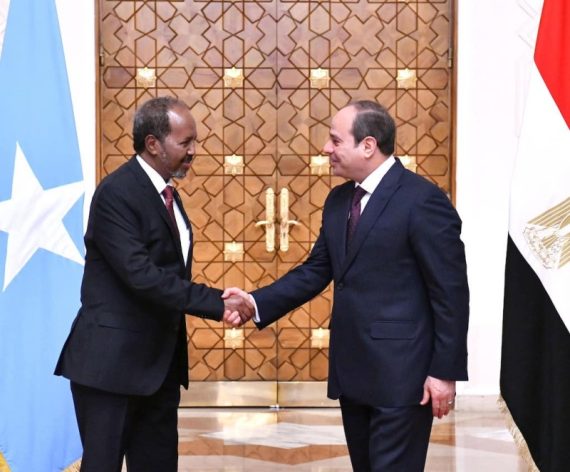I
n a strong statement on Sunday, January 21, 2024, Egyptian President Abdel Fattah al-Sisi affirmed that Egypt would not tolerate any threat to Somalia’s security. This declaration follows Ethiopia’s consideration of recognizing Somaliland’s independence in a deal that includes access to a strategic seaport.
The remarks indicate Egypt’s potential involvement in a dispute that has heightened tensions in the Horn of Africa, where it already maintains frosty relations with Ethiopia.
Somaliland declared independence from Somalia in 1991 but has not gained international recognition. The proposed port lease deal, yet to be finalized, would provide landlocked Ethiopia access to the sea through the port of Berbera on the Gulf of Aden. The deal has sparked outrage from Somalia and now draws Egypt into the geopolitical fray.
Egypt will protect Somalia
“Egypt will not allow anyone to threaten Somalia or affect its security,” President Sisi stated during a joint news conference with Somali President Hassan Sheikh Mohamud. He warned against attempts to challenge or threaten Egypt, particularly if its intervention is requested by its brothers.
In a memorandum of understanding signed on January 1, Ethiopia expressed its willingness to consider recognizing Somaliland’s independence in exchange for the port access. The agreement includes a lease of 20 km of coastland around the port for military and commercial purposes over 50 years. Ethiopia’s primary port for maritime exports is currently located in Djibouti.
President Sisi emphasized the need for cooperation on development rather than attempts to seize land, suggesting a more strategic and peaceful approach to resolving conflicts. Ethiopia rejected criticism from Egypt, characterizing the deal as a commercial agreement aimed at securing sea access rather than an annexation attempt.
Tension
The tension surrounding the Ethiopia-Somaliland deal further complicates relations between Egypt and Ethiopia, already strained due to the Grand Ethiopian Renaissance Dam constructed on the Blue Nile. Talks over the dam’s operation and water release have yet to yield an agreement, contributing to ongoing disputes between the two nations.
As Somalia rejects the deal and seeks international support, the involvement of Egypt introduces a new dimension to the complex geopolitical landscape in the Horn of Africa. The situation underscores the broader implications of regional conflicts on global diplomacy and stability.
Sources: Reuters, and Aljazeera
Recommended





